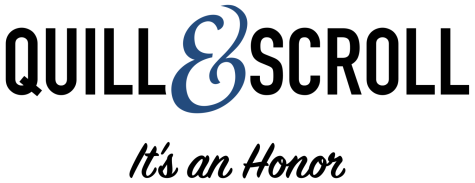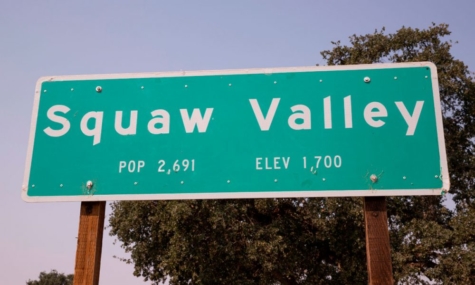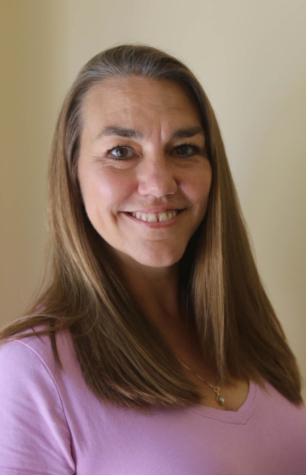Jan. 19, 2023
Our past three editions
Jan. 12, 2023 New COVID variant • Minimum wage • Damar Hamlin
Dec. 15, 2022 Gay-marriage protections • Digital security • AI
Dec. 8, 2022 Religious freedom v. LGBT rights • Adults buying Toys
THE LEDE | by Alex Steil
Alabama governor bans TikTok from state servers
Raises First Amendment issues
An executive order from Alabama’s governor, Kay Ivey, banned TikTok from all state-wide government servers –– including schools, such as Auburn University. At least 22 other states across the political spectrum have taken action against the social media platform. The federal government took similar action after an amendment made its way into the final version of this year’s appropriations bill. Some leaders are worried about the state and national security implications TikTok poses, after numerous officials –– including the FBI director –– have expressed concern about what data the app collects and stores.
What you can do —
There are several ways to tackle this story.
If TikTok were banned, what would take its place? An article could look ahead for this year’s tech to see what notable social media platforms could take place if the U.S. government continues to restrict app access.
Student journalists also could write a staff-ed that discusses the possibilities of First Amendment violations. Does the government’s ban on TikTok infringes on First Amendment rights of student journalists? Does it violate the free speech clause? Could the argument that social media is a virtual assembly place bring a potential violation of the assembly clause?
Also, how does your own school approach social media? Why should students care about what an app collects and sells? What is the impact on them? What data does your school collect about the students and staff and how is it used? Does your own school policies allow for adequate relief and breathing room regarding its interpretation for the Constitutional issue?
Noteworthy
Article leads to verification reminder
Initial article did not adequately represent source
After a comment from a congressman furthered an idea that the Consumer Product Safety Commission (CPSC) would ban gas stoves, coupled with a murky comment from a commissioner seeming to agree, a reporter ran with the story. The initial comment, which addressed banning gas stoves, was not verified by an outside primary source about the appliances. The day after, the chairperson of the CPSC made it clear the organization didn’t want to ban gas stoves.
What you can do —
This snafu highlights an important question: how did the reporter not verify this information with a source knowledgeable about the content before running to print? The reporter was told a snippet, but did not independently verify before publishing. How does your student media work to verify content from multiple and varied sources? What interview techniques do your reporters use? Are they being encouraged to ask deeper follow-up questions and verify “facts” when something is shocking? What about the fact-checking process –– are documents required or just someone’s word for it to make it into print?
Also, aside from examining your own internal processes, you could look at past examples of misrepresentation in the media so young reporters can learn about which mistakes to avoid based on prior history.
Places renamed to remove derogatory term
Could again start discussion in schools concerning naming of schools, landmarks
As we know, words matter.
The United States Department of the Interior has renamed five places to remove a term for Indigenous women from places in California, North Dakota, Tennessee and Texas. This change has been years in the making and often involved input from local tribes, communities and other stakeholders prior to the change.
What you can do —
It’s not uncommon for a school to contact the office concerning the name change of either the school name or address. An obvious connection would be to profile a student petitioning for a school, road, lake, etc. name change. A school media program could research a geographic namesake. Who is the school named after? What about the surrounding landmarks? This could morph into discussion concerning the current mascot. It also could start a student discussion concerning the words used (and avoided) in student media.
What’s viral
New Star Wars trailer drops
Highlights value of remakes and reboots
After a two year hiatus yet going on its third season, Disney released a new Mandalorian trailer as a part of its relatively new marketable TV series. The trailer is rich with easter eggs and returning characters. The show is only available on Disney+ and will be released March 1.
What you can do —
It feels that all we hear of for both TV shows and movies is a constant set of reboots or tedious continuations. Mandalorian ended two years ago with satisfied viewers. NightCourt is set to reboot this TV cycle. HBO didn’t let Game of Thrones end but instead included an addendum show, House of the Dragon. Writers could talk about the quality of film and TV, like just stated.
Or, they could instead take a different route and review the trailer and give their expectations for the upcoming show.
IT’S AN HONOR
New student opportunity offering from Quill and Scroll’s Student Advisory Board
Meet, collaborate and discuss with peers
It’s not too late to be part of Quill and Scroll’s Student Journalism Collaboration Program. This offering aims to connect student journalists from across the nation. Through virtual meetings, participants will discuss, collaborate and troubleshoot with their peers about scholastic journalism issues pertaining to their student media.
Fill out the interest form here by Jan. 27. We will send the meeting link prior to the first meeting. (We will establish this after we have the list of how many are interested. We may offer more than one option depending on interest level. We will update this info in later editions as the meeting date.)
It’s always membership season
Don’t forget you can nominate members year round
Submit members now to avoid the spring rush. Remember, we need to have either payment or the Purchase Order in order to send your order. It can take up to three weeks to process and send an order during the peak spring season, which traditionally starts next month. Also, plan ahead. We are unable to overnight orders during the weeks of March 5, March 12 and April 17.
Writing, Photo, Multimedia contest open
Due date is Feb. 6 — you have about three weeks until entries are due.
The entry form is live and we are accepting submissions. Be aware, we have changed a few items and descriptions. The cost is $7 for all entry types and you may submit live links. (No more creating and downloading the PDF if it is accessible on a website.) If you would rather make a PDF of the submission, you may still do this as well. Please make sure to allow anyone with the link to view.
Please make sure to include either your credit card payments or check or purchase order when you enter. The link provided on the site will take you directly to the credit card or check/purchase order page for the order. The WPM category payment option is at the bottom of the page.
Please reach out if you have any questions.
Plan ahead
We will be out of the office during the weeks of March 5, March 12 and April 17. Because of this, we will not send orders or publish a Scroll during these three traditionally busy weeks. Please make sure to plan accordingly. Also, as a gentle reminder, our address changed in July 2022. Many are still sending checks and orders to Iowa, which can result in a delay in sending orders. Please make sure to inform your business offices of our move to Minnesota. (Quill and Scroll, 2829 University Ave. Se, Suite 720, Minneapolis, MN 55414.) Now is a great time to select new members.
Spring convention registration opens Feb. 14
Join us in San Francisco for the JEA/NSPA National High School Journalism Convention. This year’s convention will be at the Hilton Union Square. Registration opens Feb. 7 and the hotel link is available to all registrants Feb. 14. Leave Your Heart, Find Your Voice at the JEA/NSPA spring convention April 20-22.
Chapter activity/discussion point idea: Scholastic Journalism Week
What are we doing for Scholastic Journalism Week AND Student Press Freedom Day?
First, check out the available resources for both. Ask students what they might like to do — or maybe these ideas will spur another idea. It’s time to create an action plan and timeline that includes individual responsibilities. Scholastic Journalism Week runs from Feb. 20-24 and Scholastic Press Freedom Day is Feb. 23.
Scholastic Journalism Week: There’s More to the Story
Use this teaser video from JEA to introduce the week and then start looking through the lessons and activities to help with planning. Each day has a different focus and activity. You can find these here:
Monday, Feb. 20: Truth in reporting
Tuesday, Feb. 21: Balanced reporting
Wednesday, Feb. 22: Inclusive reporting
Thursday, Feb. 23: Student Press Freedom Day (also addressed below)
Friday, Feb. 24: In-depth reporting
Chapters may want to add how they will promote JEA’s Scholastic Journalism Week using the hashtag #SJW2023. Also, chapters may want to discuss how to be included as a featured school on the SJW Twitter account.
Student Press Freedom Day: Bold Journalism. Brave Advocacy
SPLC is hosting several events leading up to Student Press Freedom Day. Now is a great time to create an activity for your Quill and Scroll chapter for Student Press Freedom Day in conjunction with SJW. SPLC has created this list of suggested activities to help. As with SJW, what might your chapter do for the day?
Additionally, SPLC will host several events leading up to this event. Full descriptions of all events and sign up links may be found here.
- Op-Ed Boot Camp, Thursday, Jan. 19. Students will learn from Steve Holmes (of the New York Times, Washington Post and CNN). Interested students may use this link to sign up.
- Overcoming Censorship: A Student Journalist-Led Open Forum, Thursday Jan, 26. The Student Press Freedom Day student co-chairs will lead this session on how students can overcome censorship and other barriers to their work. This session is exclusively for students.
- When Knowledge is Power: Uncovering Your School District’s Student Media Policies (and Making them Better), Thursday Feb. 2. Again, this session is exclusive to high school journalists.
- Write in for Student Press Freedom, Feb. 23. This addresses how to talk to the legislators in your state and connects student journalists in the New Voices Movement with each other and the SPLC staff.
Make sure to tag your social media content using #StudentPressFreedom.
As always, those of us at Quill and Scroll would love to hear from you concerning what you did and how you celebrated Scholastic Journalism Week and Student Press Freedom Day. Email us at [email protected].
Another opportunity:
While we’re on the subject, here’s another opportunity for student journalists:
2023 Free Spirit Conference: In June 2023, the Freedom Forum will host its annual Al Neuharth Free Spirit and Journalism Conference for high school juniors. Students selected for the program receive an all-expenses-paid trip to the nation’s capital where they are introduced to top journalists, as well as a $1,000 scholarship to the college of their choice. Applications are due March 1.
Just a thought
As you can see, February is a busy month for high school students and their advisers. While now is a great time to start preparing activities and celebrations for both Scholastic Journalism Week and Student Press Freedom Day is Feb. 23, it’s also a great time to show the connection of these events to the rest of the year.
How do your students show the themes of both of these events during the school year? How do they cover topics that show there’s more to the story? How do they boldly show the stories of their peers? What are other schools doing during this time? Are these ideas you can adapt to your school and use during the rest of the semester?
Maybe these conversations ignite ideas for a media literacy campaign to show readers why your students do what they do. Quill and Scroll Chapters could use this week as a time to show how student media functions and the importance of transparency for all student media outlets. For example: Who makes decisions? What is the importance of being student led? When someone has a complaint about what is in student media, what should they do? How are these complaints addressed? This could develop into a year-long campaign.
Maybe it shows the need for chapters to highlight the importance of centering student voice and a free student press. When I advised, some student readers didn’t understand that a “staff editorial” was not written by teaching staff. After they learned of this, the students worked on educating their readers and highlighted how they were a student-run publication. No one outside of their own staff approved content prior to publishing.
Take time to celebrate these days and build from them — and bringing in brownies or cupcakes to celebrate is never a bad idea especially when paired with a healthy clementine option.
— Lori Keekley



